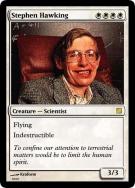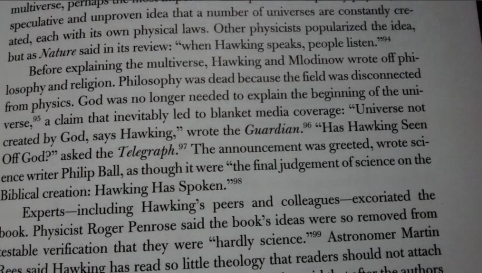Chapter 1: Stephen Hawking or how if Sheldon Cooper existed in real life he wouldn’t worship a scientific celebrity
 Welcome to the second installment in my review and thoughts about the book “The new celebrity scientists” by Declan Fahy! If you missed the first post here is a link to it. There is A LOT to say about this chapter on Hawking. From the “myth of the lone scientist” to what society feels is the worthy science to portray in the media.
Welcome to the second installment in my review and thoughts about the book “The new celebrity scientists” by Declan Fahy! If you missed the first post here is a link to it. There is A LOT to say about this chapter on Hawking. From the “myth of the lone scientist” to what society feels is the worthy science to portray in the media.
The author wrote an interesting piece about how the movie “The Theory of Everything” debunked some of the myths surrounding Hawking. I recommend anyone interested in this topic to read it.
Now going to the subject of this particular post I’ll like to talk about a few things: 1) What message society gets with the portrayals of Hawking in pop culture, 2) The myth of the lone scientist, and 3) Hawking’s views on philosophy. Excited???? Let’s start !!
The irony of Sheldon Cooper’s meeting with Stephen Hawking
Stephen Hawking’s predominance in popular culture is so big there is even a Wikipedia page about it. Some of the most interesting ones are for example:
- The 11th Hour. In this film about the effects of human activity on the environment, Hawking gave explanations of these effects.
Where last time I checked Hawking is not an expert on the environment and has never done research on it. This is one of the most classic examples of scientific celebrities’ role in society they are perceived as experts in EVERYTHING. In society is hard to view science as something so big and complex that you become an expert in a tiny part of a tiny field. And that is one of the biggest misconceptions there is.
- Genius of Britain. A five-part 2010 Channel 4 series profiling “the most famous” British scientists.
This is another interesting thing. In 1999, Physics World surveyed approximately 130 physicists and asked them to name the five researchers who made the most significant contributions to the field. Hawking received only one vote. Now I am not saying Haking’s research was not relevant. I don’t belong to the field and I cannot make a judgement on that (hopefully someone will read this and has the expertise to talk about it the comments). From what I have heard what he did was important just not Theory of Relativity kind of important. But society wise he is portrayed sometimes as someone who should have won a Nobel Prize a long time ago (assuming the Nobel Prize is the best measurement of a scientist’s contribution to society, a complex a controversial issue by itself).And this creates the illusion that his research and his position on certain theories is the best and most important, even though, some of his claims cannot be tested or are part of a non-science consensus theory. Which brings me to my next point:
- The Big Bang Theory. (Episode 108: The Hawking Excitation; Episode 117: The Extract Obliteration (voice-over); Episode 155: The Relationship Diremption (voice-over); Episode 173: The Troll Manifestation)
Here is Sheldon Cooper’s first meeting with Stephen Hawking:
The ironic thing is that if Sheldon were a real life scientist he would complain about Hawking’s fame. He is the type of scientists that would make comments all the time about how Hawking does not do real science anymore and is just writing books for profit. The behavior in that meeting goes totally against Sheldon’scharacter. However, this portrayal not only tells society Hawking is the most outstanding scientist but that scientists also consider him the best scientists that have ever existed. Something that is not true.
The myth of the lone scientist
When I started doing research in chemistry a few years ago I thought it was a personal endeavor. I would work by myself in a project without the collaboration of anyone else. As time went by I realized my approach to solving problems came as much from my head as from talking with my fellow lab-mates. The more I made use of the practices of science the more I could tell there is a personal making-meaning process and a social one in science.
This deviates from one of the greatest myths that surround Science, the myth of the “lone genius”. One of the best contemporary examples comes from the discovery of the Higgs boson. Peter Higgs proposed in the 1960’s the existence of a new “boson like” particle. Arguably he connected the dots by himself, he made meaning of the current understanding of physics and mathematics and proposed a theory that revolutionized his field. However, saying he did it by himself might be romantic but inaccurate. In order to “make meaning” of the current research he had to be part of the physics culture and he had to be part of the bigger conversation. Though he proposed by himself (he was the sole author of the article), it took 49 year, a team of 3,000 people, and the construction of one of the most ambitious and expensive machines in history. 22 countries are considered official members of the project and more than 30 participate in co-operation agreements.
The same thing happens with Stephen Hawking, he is always portrayed by himself and is rare to read about him having students or help from everyone else (something that Declan Fahy mentions in the book and on the article mentioned above). Not only that but until recently I have never stopped to think that in the big bang theory we never see grad students. These guys are supposed to be researchers at Caltech, and we never see a single grad students working with them, they are always by themselves !!! And this is one of the best examples of how society perceive us scientists. Not only as nerds and loners but as people who do the job by themselves without collaborating.
Hawking’s views on philosophy
This is going to be really short. Not because it is not important to talk about his but I am interested in seeing how many of the scientists portrayed on the book follow this pattern. This is an excerpt from Fahy’s book:
I always find fascinating when a scientist (any scientist) dismisses philosophy. Are they aware that their title is Doctor in Philosophy?? Do they think that is just because of some historical tradition but something not really important nowadays? Philosophy of science specifically studies the foundations and methods of science. Our understanding of what is considered evidence and knowledge come from philosophy. Science is so dependent on philosophy that I think a scientist that writes it off has a lack of understanding of what it means to be a scientist in general.
I must say that I really liked how Declan Fahy was very objective in this chapter. He mentioned the backlash Hawking has received from the scientific community and the paradox of his celebrity status without making a judgement on whether his science is as relevant as society thinks. He is not an expert on cosmology to know and I think it was good that he presented all the information from both sides and left it to the readers to make a decision on the topic.
But this is not only about what I think ! What do you guys think?? Do you agree with what I said in this post or not? Looking forward to reading your comments !
Until next time,
Paulette
@pinkyprincess



Heisenberg said that Niels Bohr “was primarily a philosopher, not a physicist, but he understood that natural philosophy in our day and age carries weight only if its every detail can be subjected to the inexorable test of experiment”
I can agree with seeing natural philosophy that way. But I also wonder philosophy in a more broad way. If you have this reject of philosophy in general what stops you from rejecting humanities or social sciences as useful, necessary or worthy of respect?
Pingback: Richard Dawkins or how he became a product of postmodernism | biomolbioandco